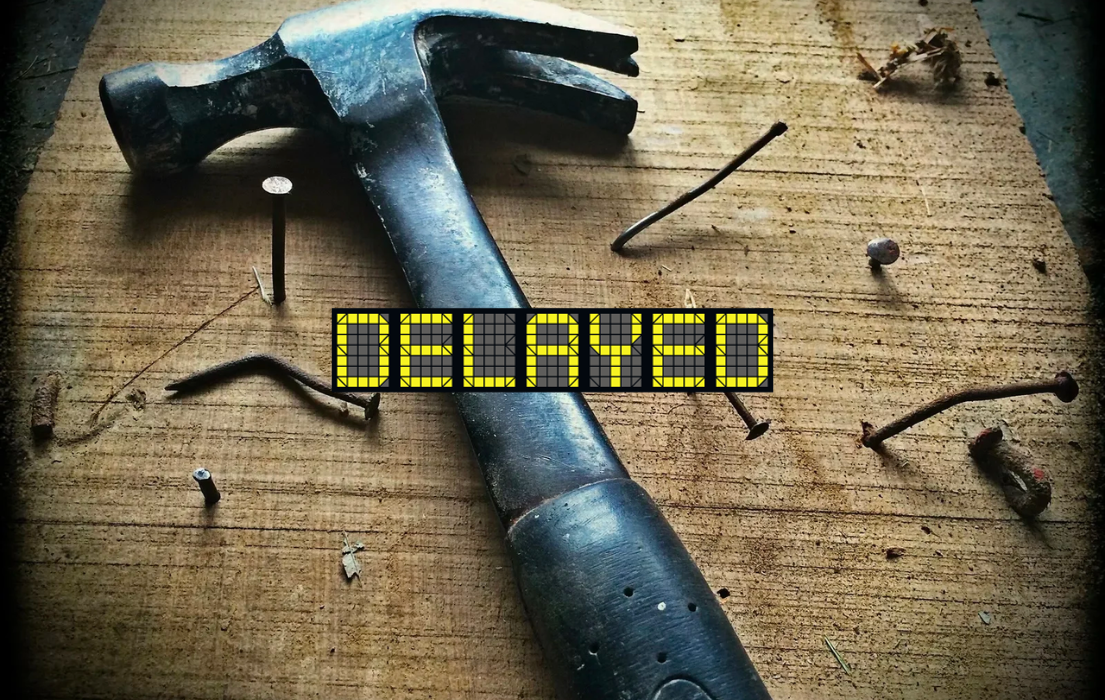Mention construction delays to anyone in the industry and you'll hear endless stories of projects which run on for weeks, months and years over schedule. Construction delays are so common that, according to McKinsey Global Institute, 77% of projects are behind schedule.
In each construction project, there are so many moving parts, not least the individuals involved in working to complete a project. With so many variables, it's easy to understand how even the smallest change can negatively impact a project schedule. Furthermore, delays often mean additional fines and fees, which can eat into the margin, affect your reputation and ultimately lose clients.
Although delays are common, not one person benefits from them. Delays are extremely costly. While some elements of a delay may be out of a worker's control, i.e, the weather and natural disasters or global pandemics, there are other types of delays that can be controlled to a certain degree to avoid high costs and time issues. Project controls are no guarantee against costly delays, but will drastically decrease the likelihood of them occurring.
Talk to one of our Product Specialists and learn more about Fonn here.
So what are the most common construction delays that hold up a project?
-
Areas outside of the project's control – like the weather are known as excusable delays. Non-excusable ones are areas that construction workers, project Managers, subcontractors need to take some accountability for such things. These may include poor planning, bad workmanship, faulty equipment and subcontractors failing to meet deadlines.
-
Changes to project scope – unexpected changes to scope can have a real negative impact. This can be down to the poor scheduling of tasks and an unrealistic expectation of how long things take. When inaccuracy exists from the beginning, it can be very hard to catch up or to make the right level of changes to get the project done in the time it was estimated.
-
Codes and Building Regulations – making sure that any new or existing regulations are factored in from the start to avoid any unnecessary delays. Without comprehensive knowledge of relevant rules and regulations, cutting corners to speed the project up could increase any delay.
-
Finance and Budget – financing is another common need that can be addressed at the start of the planning phase. Sometimes it can be that a project is partially funded upfront so careful planning and tender processes throughout the project life cycle are key to keeping your end budget goal on target.
-
Staff level balance – making sure you get the right amount of staff is key. Too few and you fall behind on delivery and too many could push your budget over the edge. Plan for extra workers, consider a backup team. Be clear on your company's limitations – don't commit to work if you know you will not have the staff levels required.
-
Best staff for the job – making sure you have the right skill sets on a job is key. You must carefully define these and provide a training platform for all staff. A software that can track productivity is key to monitor this. Having a good project is paramount, and I personally suggest getting them involved as early as possible - whilst this might have a short term cost, the benefits are worth the expense.
-
Communication – to provide a platform that allows all project staff to communicate and update on areas they are responsible for. Having everything in one place helps manage updates to clients and also provides outputs for the areas that may be falling behind. Clear and consistent communication is key to successful delivery.
Although projects seem to be delayed more often than they're not, construction professionals should be aware of the varying degrees of delays and what causes them to avoid as many of them as possible.
Some construction delays simply cannot be avoided, but the damage they cause can often be mitigated with proper planning, communication and software applications. When construction companies are prepared, delays become shorter and less frequent, helping them stay on time and budget. In turn, the more successful and on-time your project is, your ROI increases and your company now has more time and resources to win more work.
So how can we encompass all of the above to make things better for the areas you can control regarding delays?
Fonn is a unified construction management software solution that increases productivity through streamlined collaboration. A web application in the office, and a mobile app on-site, Fonn is ideal for construction projects of all sizes. Builders and workers can store pertinent documents, communicate in real-time, and monitor projects off-site in a single platform. Fonn simplifies communication so contributors stay informed and stay ahead of costly errors. Projects are done on time, on budget—creating efficiency and saving money. Fonn has allowed our users to deliver construction service excellence on over 25,000 projects worldwide.







